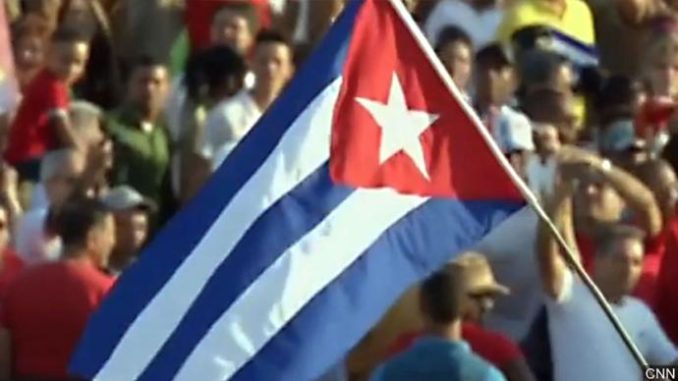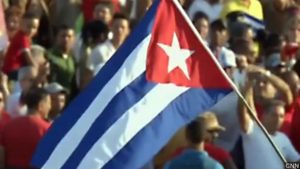
 HAVANA (AP) — The Latest on the meeting of Cuba’s legislature and the scheduled end of Raul Castro’s presidency (all times local):
HAVANA (AP) — The Latest on the meeting of Cuba’s legislature and the scheduled end of Raul Castro’s presidency (all times local):
12:10 p.m.
The Cuban government has nominated First Vice President Miguel Mario Diaz-Canel Bermudez as the sole candidate for president, guaranteeing that the 57-year-old engineer will succeed Gen. Raul Castro, 86.
Wednesday’s announcement confirms the long-held expectation that Diaz-Canel would take over from Castro in a transition meant to ensure that the country’s single-party system outlasts the aging revolutionaries who created it.
The nomination must be now approved by the 604 delegates attending the National Assembly, which always approves nominations with total or near-total unanimity.
Nominated as new first vice president is Salvador Valdes Mesa, a 72-year-old Afro-Cuban former union official who has held a long series of high posts in the Cuban government.
___
10:30 a.m.
A two-day session of the Cuban legislature has started with some bureaucratic business as lawmakers prepare to elect the country’s new president.
It started with an oath of office read by Leydimara de la Caridad Cardenas Isasi, the youngest member of the more than 600 members of the National Assembly of People’s Power. A young Afro-Cuban, Cardenas represents the central town of Jovellanos. She joined the assembly when she was 16.
Later, the members of the assembly will vote for president of the country, with the results expected to be announced Thursday.
___
9:45 a.m.
Cuba’s government is embracing social media as it convenes the National Assembly to elect a successor to President Raul Castro.
State-run media and government-controlled Twitter accounts are promoting what is expected to be a historic handover of the presidency to the first non-Castro to lead the country in nearly 60 years.
The accounts are using the hashtag “Somos Continuidad” or “We are continuity.” It’s an apparent effort to convey the message that the Cubans shouldn’t expect radical change when a new president is announced on Thursday.
Internet access has increased dramatically over the past two years but the country still has one of the lowest percentages of home internet usage in the world. Few Cubans use Twitter and the vast majority of the country relies on TV for news.
